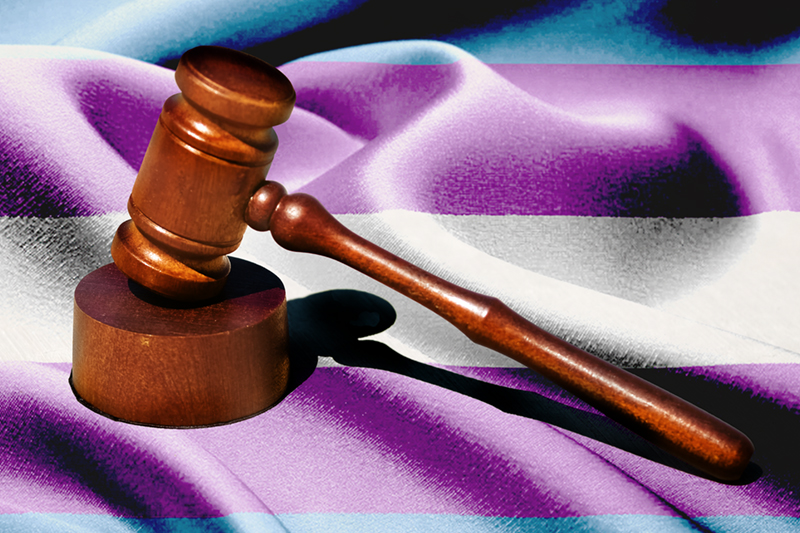Frederick County, Va., updates nondiscrimination policies to include sexual orientation
Sexual orientation protections are explicit, but protections for gender identity are not

Frederick County, Va., has expanded its nondiscrimination and anti-harassment policy to better protect LGBTQ employees from discrimination and harassment.
The Frederick County Board of Supervisors unanimously approved the amended policy on July 10 at the recommendation of the county’s Human Resources Committee.
The amended policy prohibits discrimination or harassment on the basis of sex, which, under an updated definition, includes pregnancy, childbirth and related medical conditions, and sex stereotyping, as well as sexual orientation, genetic information, color, and military status.
Those newer protections have been added to existing protections for race, religion, national origin, age, disability, marital status, or protected veteran status.
While the policy does not explicitly protect gender identity or gender expression, Frederick County Public Information Officer Karen Vacchio told the Winchester Star that transgender people can be protected under prohibitions on discrimination based on sex stereotyping or genetic information.
“The reason for the modification to the policy was just part of a general look at all our policies,” Vacchio said. “It is simply an update and wasn’t prompted by any issues.”
The amended policy provides more examples of what constitutes workplace harassment, including but not limited to “slurs, epithets, threats, derogatory comments or visual depictions, unwelcome jokes and teasing, stereotyping, insulting or obscene comments or gestures, display or circulation in the workplace or written or graphic material that denigrates or shows hostility or aversion toward the individual or group or other verbal or physical actions relating to an individual’s protected characteristic.”
The policy’s newer, more robust definition of sexual harassment includes: request for sexual favors as an explicit or implicit condition of employment; unwanted physical contact of any kind; sexual innuendos; suggestive, insulting or graphic comments, noises, or sounds; and sexually explicit, suggestive, or offensive jokes. It also forbids comments, messages, or the distribution or pictures or objects that are considered “demeaning, insulting, intimidating or sexually suggestive.”
It also has guidelines for filing complaints of harassment, and forbids retaliation against employees who make a good faith complaint and cooperate fully and truthfully during any investigation looking into allegations of harassment.

Equality Virginia, the state’s top LGBTQ organization, commended the Board of Supervisors for adopting the expanded protections, but says the policy could have gone further.
“We’re glad to see Frederick County take a step towards creating a more inclusive work environment for their employees by adding sexual orientation to their nondiscrimination policy,” Vee Lamneck, the group’s deputy director, said in a statement. “However, we were disappointed that gender identity was not explicitly enumerated in the policy update as this would have sent a clear sign to transgender employees that they are welcomed and valued.
“Not only would the inclusion of gender identity in the non-discrimination policy update give transgender employees peace of mind, it would also follow national standards with over 82% of the nation’s largest companies having adopted comprehensive non-discrimination polices that include both sexual orientation and gender identity,” Lamneck added.
Because Virginia is a “Dillon Rule” state, there are limitations on what type of laws localities may pass that are not covered by laws that have already been passed by the commonwealth’s General Assembly.
This rule has been used to justify blocking localities from passing LGBTQ-inclusive nondiscrimination ordinances, as current law does not recognize protections for sexual orientation or gender identity.
However, counties and local governments are often given some degree of leeway when it comes to establishing their own internal employment or harassment policies. Because the changes are not part of a larger ordinance, it appears they would not conflict with the Dillon Rule.
Support Metro Weekly’s Journalism
These are challenging times for news organizations. And yet it’s crucial we stay active and provide vital resources and information to both our local readers and the world. So won’t you please take a moment and consider supporting Metro Weekly with a membership? For as little as $5 a month, you can help ensure Metro Weekly magazine and MetroWeekly.com remain free, viable resources as we provide the best, most diverse, culturally-resonant LGBTQ coverage in both the D.C. region and around the world. Memberships come with exclusive perks and discounts, your own personal digital delivery of each week’s magazine (and an archive), access to our Member's Lounge when it launches this fall, and exclusive members-only items like Metro Weekly Membership Mugs and Tote Bags! Check out all our membership levels here and please join us today!

























You must be logged in to post a comment.